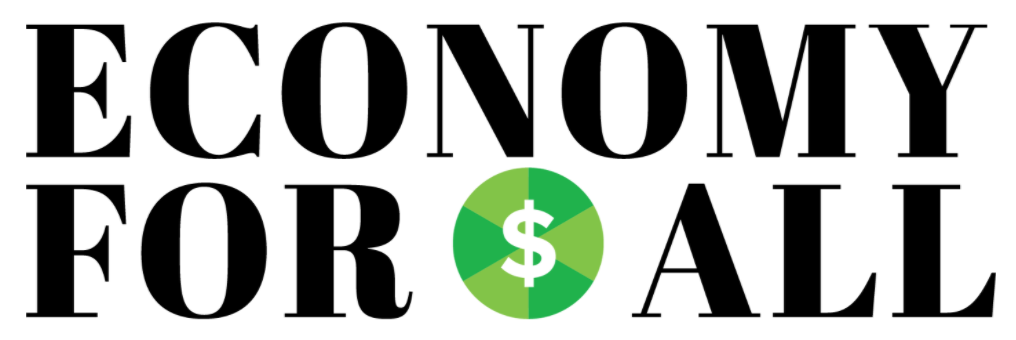by SONALI KOLHATKAR

Headlines are screaming that inflation is here to stay. Consumer prices have risen by an average of 6.2 percent in the past year, the sharpest increase since 1991. Although Americans are supposedly—in the words of the New York Times—“flush with cash and jobs,” they are also deeply unhappy with the state of the economy.
It’s no wonder Republicans are thrilled and are drawing a line between inflation, public anxiety about the economy, and Joe Biden’s presidency.
What is surprising is that President Biden himself is helping them by citing his administration’s achievement of putting more money into people’s pockets as part of the explanation for the current spike in inflation. In a November 10 speech, Biden said, “You all got checks for $1,400. You got checks for a whole range of things,” and with the patience of an academic teaching an Economics 101 class, he went on to explain, “Well, with more people with money buying product and less product to buy, what happens? … Prices go up.”
The New York Post, a conservative-leaning paper, jumped on the speech, claiming that the president “concedes his COVID stimulus checks fueled [the] spike in inflation.”
The paper downplayed Biden’s assertion that, “The supply chain is the reason.” In fact, the president led his audience through a fairly clear explanation of how globalization of the economy works, has artificially driven down the cost of goods for decades, and is vulnerable to disruptions such as that caused by the COVID-19 pandemic.
Biden said, “Products like smartphones often bring together parts from France, Italy; chips from the Netherlands; touchscreens from New York State; camera components from Japan—a supply chain that crosses dozens of countries.”
He then concluded, “That’s just the nature of a modern economy—the world economy,” as if the massive web of consumer manufacturing was a fact of nature rather than a systematically deregulated system designed by multinational corporations to minimize the cost of materials and labor and maximize their profits.
Recall that this was precisely what the anti-globalization movements of the 1990s were protesting. According to a 2007 essay by Mark Engler, protesters included, “trade unionists, environmentalists, anarchists, land rights and indigenous rights activists, organizations promoting human rights and sustainable development, opponents of privatization, and anti-sweatshop campaigners” from all over the world who claimed that “the policies of corporate globalization have exacerbated global poverty and increased inequality.”
When Biden explained in his speech that you “have to use wood from Brazil, graphite from India before it comes together at a factory in the United States to get a pencil,” he didn’t reveal that pencil manufacturers obtain wood from Brazil because they might be relying on illegal loggingof the Amazon that drives down the price of wood. Nor did he mention that the cost of transporting goods from the far reaches of the globe generate massive carbon pollution that is driving climate change.
Rather than blaming globalization for inflation, he concluded it was simply “the nature of a modern economy” that we rely on. Most media outlets missed this connection too. Instead, there is blame on the increasingly rare instances of the U.S. government ensuring people have enough money to live on.
As to why Americans are so unhappy about the state of the economy? Apparently, according to Bloomberg’s Ramesh Ponnuru, it is “a frequently recurring” pattern that when wages are rising there is broad pessimism. He rightly points out that, “Wages and benefits have been moving up smartly, but only in nominal terms,” and that, “positive trends would have to continue before people began to register satisfaction.”
I Eye News for more